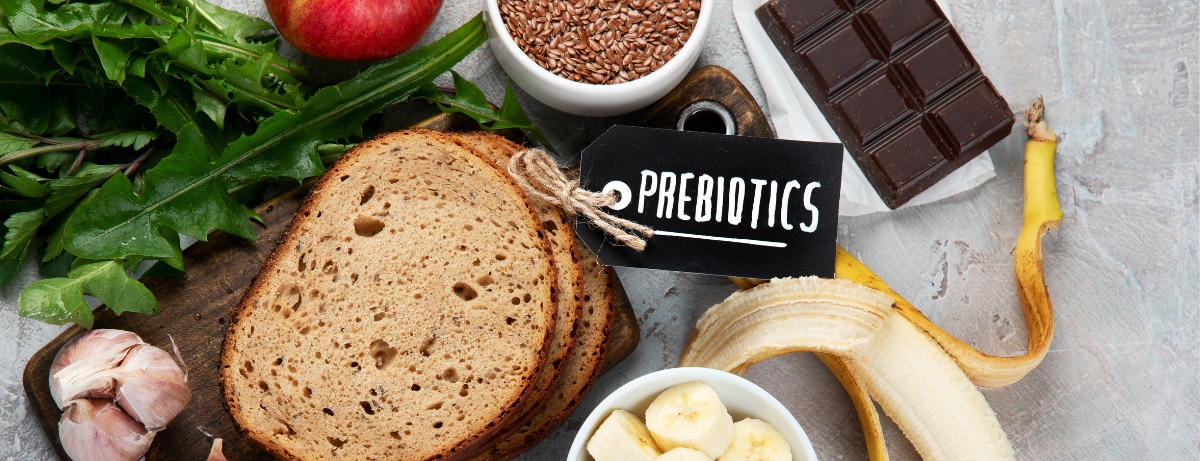15% off €25
Code:EXTRA
Common food poisoning symptoms and how to relieve them

Unsure if you have food poisoning? Here's the most common causes of food poisoning plus symptoms, relief & whether it can be prevented in the first place
Summary
1What causes food poisoning?
Food poisoning is something you can catch from eating or drinking something that is contaminated. This is most commonly contamination with bacteria...
2What are the signs of food poisoning?
Symptoms of food poisoning can depend on what caused it, but the most common are: feeling or being sick (nausea and vomiting)...
3How can I ease the symptoms of food poisoning?
Food poisoning is a horrid experience, but the only thing you can really do while you ride it out is find ways to help your body flush out your...
While it is undeniably unpleasant to experience, food poisoning is not usually serious. And you should be able to ease your symptoms at home and get better within a week. Food poisoning is so common, in fact, that almost half the respondents in a UK survey said they have experienced food poisoning.1 Food poisoning causes inflammation of the lining of the gut, which is referred to as gastroenteritis, gastric flu, or stomach flu.
What causes food poisoning?
Food poisoning is something you can catch from eating or drinking something that is contaminated. This is most commonly contamination with bacteria or viruses, but affected food can also be contaminated with moulds, allergens, parasites, or other toxins. Food can become contaminated if it is not cooked, stored or handled properly. For example, if it is served past its expiry date, left out of the fridge, or it comes into contact with contaminated equipment.2 The main infections that cause food poisoning are:
Campylobacter bacteria is the most common cause of food poisoning in the UK. You can get this from raw meat, especially chicken.
You can become infected with this and come down with food poisoning from chicken and eggs, as well as other meat, vegetables and fruits, plus drinking contaminated water.
Coli bacteria can be caught from undercooked beef, as well as some unpasteurised drinks. It spreads easily though faeces.
Norovirus spreads easily through food handled by an infected person, and can be found on raw fruit and vegetables, as well as seafood, such as oysters.
What are the signs of food poisoning?
Symptoms of food poisoning can depend on what caused it, but the most common are:
- feeling or being sick (nausea and vomiting)
- diarrhoea
- stomach cramps
- a fever (high temperature)
These symptoms normally occur a few days of eating the infected food, but it can take as little as a few hours or as long as a few weeks. The symptoms can last anything from a few hours to a few days. Diarrhoea usually stops within 5 to 7 days, and vomiting in 1 or two days.3
How can I ease the symptoms of food poisoning?
Food poisoning is a horrid experience, but the only thing you can really do while you ride it out is find ways to help your body flush out your system, and replace the salts and water it loses. Dehydration is the most serious complication of food poisoning, especially for those considered vulnerable, i.e. the very young and old, or those with underlying conditions.4
It is therefore important to stay hydrated, even though it may feel like drinking is the absolute last thing you want to do. It is important to try and take small but frequent sips of water, if a large drink is not something you can tolerate. Avoid fruit juice or fizzy drinks, as they can make diarrhoea worse.5
Try ice and even very diluted squash if you are struggling to drink water. As well as keeping hydrated, the NHS advises that you stay home and rest. Some people may say that you should eat or avoid specific foods, but the current advice is to eat when, and what you feel able to. No need to seek out something “gentle on the stomach”. Hydration is the most important advice to aid your recovery.
Can food poisoning be prevented?
Many of the bacteria and viruses that cause food poisoning spread very quickly and easily, and can infect other people if food is not handled, cooked or stored properly. The Food Standards Agency’s 4Cs of food hygiene are useful reminders for how to maintain good food hygiene6 :
- Cleaning
- Cooking
- Chilling
- Cross-contamination
Remember that you too can spread an infection if you have food poisoning, so stay off school or work, to help make sure that you do not pass it on! So, while food poisoning really is no fun, you can mostly let nature run its course and stay hydrated and rested. If your symptoms are severe, you have a high fever or you are unable to take on fluids for an extended period of time, seek medical attention immediately.
1 https://www.foodsafetynews.com/2019/04/survey-finds-rise-in-people-affected-by-food-poisoning-in-uk/
2 https://www.nhs.uk/conditions/food-poisoning/
3 https://www.nhs.uk/conditions/diarrhoea-and-vomiting/
4 https://www.medicalnewstoday.com/articles/154555
5 https://www.nhs.uk/conditions/diarrhoea-and-vomiting/
6 https://www.food.gov.uk/business-guidance/food-hygiene-for-your-business



